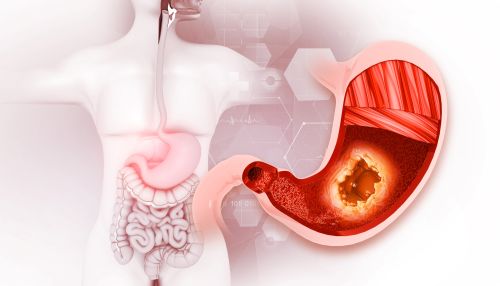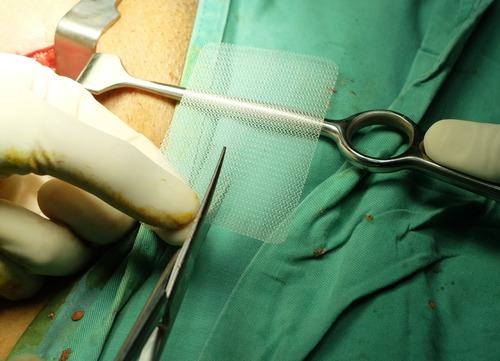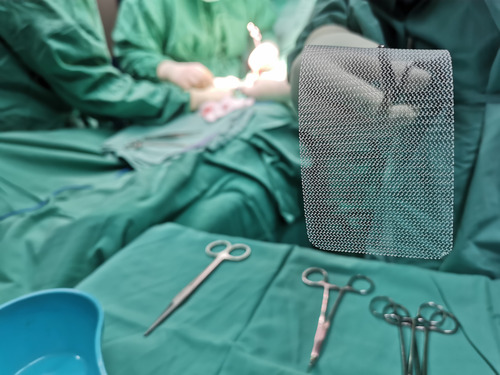- PPI Stomach Cancer
Proton pump inhibitors (PPIs) like Prilosec are among the most commonly prescribed drugs for conditions such as acid reflux and GERD, providing relief for millions of patients worldwide. However, growing concerns about the potential link between long-term PPI use and serious health risks, including developing stomach cancer and esophageal cancers, have prompted closer scrutiny of these widely used medications.
In this blog, we delve into the potential risks of long-term proton pump inhibitor (PPI) use, explore alternatives and lifestyle changes to manage acid-related conditions safely and discuss the importance of consulting with an experienced mass tort litigation attorney for those seeking legal recourse after experiencing adverse effects.
Understanding Proton Pump Inhibitors (PPIs)
Proton pump inhibitors (PPIs) are common meds that reduce stomach acid and treat many gut issues. Here’s how they work, what they’re used for, and where you can get them.
How PPIs Work
PPIs like Prilosec work by blocking the proton pumps in the stomach lining that produce acid. Gastric acid suppression helps symptoms but can also increase the hormone gastrin. By reducing acid production these meds give relief from symptoms like heartburn, acid reflux, and ulcers. Stomach acid suppression also protects the esophagus and stomach lining from damage caused by excess acidity.
PPIs Used For
These meds are prescribed for conditions like gastroesophageal reflux disease (GERD), peptic ulcer, and Helicobacter pylori (H. pylori) infection. PPIs like Prilosec are also used to prevent stomach ulcers in patients taking nonsteroidal anti-inflammatory drugs (NSAIDs) or other meds that may irritate the stomach.
Examples of PPIs
Omeprazole (Prilosec), esomeprazole (Nexium), lansoprazole (Prevacid), pantoprazole (Protonix), rabeprazole (AcipHex) are some of the popular PPIs. Many of these are available as prescription meds and over-the-counter meds.
Availability
PPIs are among the most prescribed meds globally with billions of dollars spent on them in the US alone every year. Their over-the-counter availability makes them a convenient option for managing acid-related conditions but concerns about long-term use and risks have emerged.
The Cancer Risk of Taking Prilosec
The link between long-term PPI use, including Prilosec, and the risk of gastric cancer has been debated in the medical community. This section looks at the evidence, mechanisms, and limitations of the research.
Studies
Many studies have shown a possible link between long-term PPI use and gastric and esophageal cancer. Some studies have shown long-term PPI use, including Prilosec, to be associated with a two-fold increased risk of stomach cancer. For example, a study from Hong Kong found up to 834% increased risk in patients taking PPIs daily for extended periods. Although these findings are scary they are correlation, not causation.
How Gastric Cancer Develops
PPIs suppress gastric acid production which can lead to increased levels of a hormone called gastrin which stimulates cell growth in the stomach lining. This overproduction of gastrin may increase gastric cancer risk over time. Over time this overproduction of gastrin may lead to hyperplasia or abnormal cell growth which may increase tumor development. Reduced acid levels can also allow for bacterial overgrowth including Helicobacter pylori which is strongly linked to gastric cancer.
Observational Studies and Helicobacter Pylori Limitations
While observational studies are useful they can’t prove direct causation. Factors like diet, smoking, genetic predisposition, and pre-existing conditions can also influence cancer risk making it hard to isolate the effect of PPIs alone. More randomized clinical trials are needed to make conclusions.
Different Opinions
Some say PPIs may reduce esophageal cancer risk in patients with GERD by controlling acid reflux and preventing Barrett’s esophagus. However, the simultaneous rise in PPI use and esophageal cancer rates over the past few decades has others questioning whether PPIs are the solution or the problem. This conflicting evidence shows how complex the issue is and how PPIs should be used with caution.
Alternatives and Lifestyle Changes
For those concerned about long-term Prilosec use, exploring alternative treatments and making lifestyle changes can help manage acid-related conditions.
Alternative Medications
Switching to other meds may reduce the risk while still providing relief. Histamine-2 receptor antagonists (H2 blockers) like ranitidine or famotidine can lower stomach acid without the long-term side effects of PPIs. Some antacids like those with sodium bicarbonate can neutralize stomach acid and provide quick relief. Over-the-counter antacids like calcium carbonate (Tums) or magnesium hydroxide (Milk of Magnesia) can provide quick relief for occasional symptoms but not for long-term use.
Dietary Changes for Acid Reflux
Making dietary changes is a simple way to manage acid reflux and related conditions. Avoiding trigger foods like spicy food, acidic fruits, caffeine, and alcohol can help relieve symptoms. Eating smaller more frequent meals instead of large portions can reduce pressure on the stomach and reduce acid buildup.
Weight Management
Excess weight increases abdominal pressure which can worsen acid reflux. Managing weight through a balanced diet and regular exercise can alleviate symptoms and reduce medication dependence.
Smoking Cessation and Alcohol Reduction
Smoking weakens the lower esophageal sphincter and allows stomach acid to flow back into the esophagus. Quitting smoking and reducing alcohol intake can improve gut health and reduce complications.
Stress Management
Chronic stress can worsen gastrointestinal symptoms by increasing stomach acid production and disrupting digestion. Practicing relaxation techniques like meditation, deep breathing or yoga can reduce stress and overall health.
Sleep Hygiene
Proper sleep positioning like elevating the head of the bed can prevent nighttime acid reflux. A consistent sleep schedule and not eating late at night can also support digestive health.
Talk to a Doctor
Before making big changes, talk to a doctor to make sure the alternatives and lifestyle changes you choose are right for you. If you’ve been on PPIs for more than a year, it’s important to discuss the risks with your doctor. Regular follow-ups are important to monitor progress and adjust treatment as needed.
Legal Options for Affected Patients
For those who believe they’ve been harmed by long-term PPI use, seeking legal action may be a way to get compensation and justice. This section explains the legal process and steps involved.
Product Liability
Product liability laws hold companies responsible for not making their products safe. According to Harvard Medical School, long-term use of PPIs can have serious health consequences which manufacturers should warn about. In the case of PPIs lawsuits often allege that companies didn’t warn consumers or the medical community about the risks including cancer risk and other serious side effects. Patients diagnosed with gastric or esophageal cancer may have a case against the manufacturer.
Basis for Lawsuits
Many lawsuits claim PPI manufacturers knew about the risks of their medication. Allegations include failure to warn, design defects, and negligence in testing the long-term safety of the drug. Legal action is supported by growing medical evidence linking Prilosec use to serious health risks which strengthens the case against the manufacturer.
Types of Compensation
Affected patients may be entitled to compensation for medical expenses, lost income, pain and suffering, and other damages caused by their condition. In some cases, punitive damages may also be awarded if the manufacturer is found to have acted with gross negligence or intentional misconduct.
Mass Tort Litigation
Mass tort litigation allows multiple people with similar claims to join their cases together while still having separate legal proceedings. This can increase efficiency and use shared evidence against the manufacturer. Joining an existing lawsuit or multidistrict litigation (MDL) may be the way to go for patients.
Talk to a Lawyer
Working with an experienced product liability lawyer is key to navigating these cases. A qualified lawyer can evaluate your claim, gather evidence,ce and advise on the best legal strategy. Initial consultations are often free and many lawyers work on a contingency basis meaning you only pay if you win.
Time is of the Essence
Legal claims have statutes of limitations that set deadlines to file a lawsuit. Patients should act fast to avoid being time-barred. Talking to a lawyer as soon as possible ensures all the necessary steps are taken within the time frame.
Building Your Case
To build your case patients need to provide medical records, proof of Prilosec use, and evidence of how their condition is linked to the medication. Expert testimony and scientific studies can also support the claim, showing the link between PPI use and the harm alleged.
Justice and Awareness
Besides compensation legal action can hold manufacturers accountable and bring public awareness to the long-term risks of Prilosec use. Winning lawsuits may also lead to stronger regulations and clearer warnings for future patients. For those affected pursuing legal action means not only financial relief but also being part of the change.
Contact an Experienced Mass Tort Lawyer Today!
If you or a loved one has experienced serious health complications, including gastric or esophageal cancer, after using Prilosec or other proton pump inhibitors, it’s crucial to take action. Our team at Class Action Lawyers Coalition is here to provide expert guidance and fight for the justice you deserve.
Contact us today at 855-938-0980 for a free claim review!








